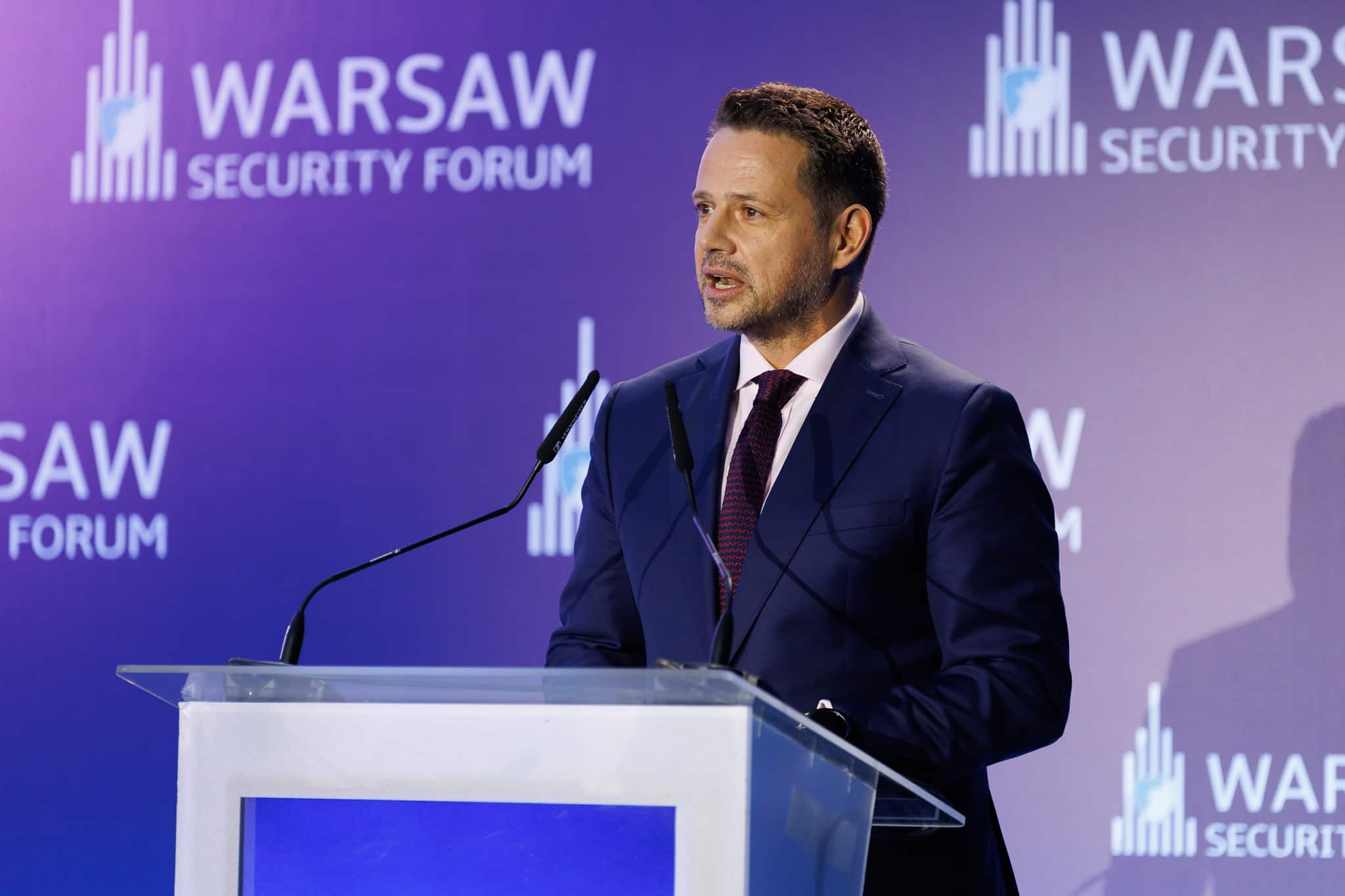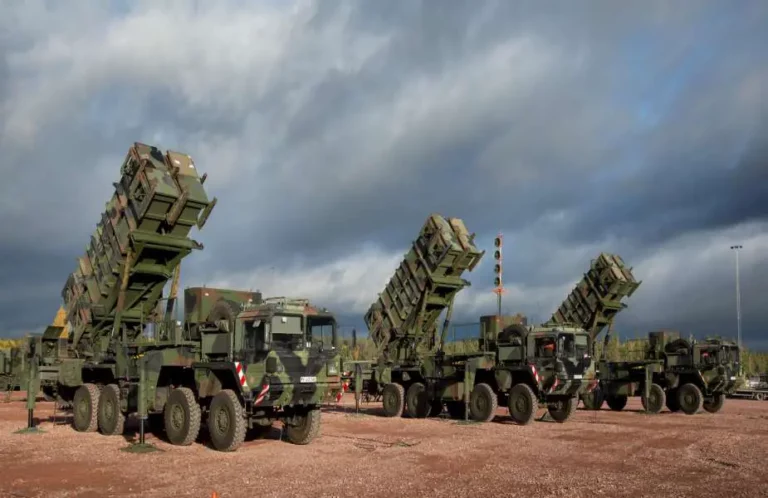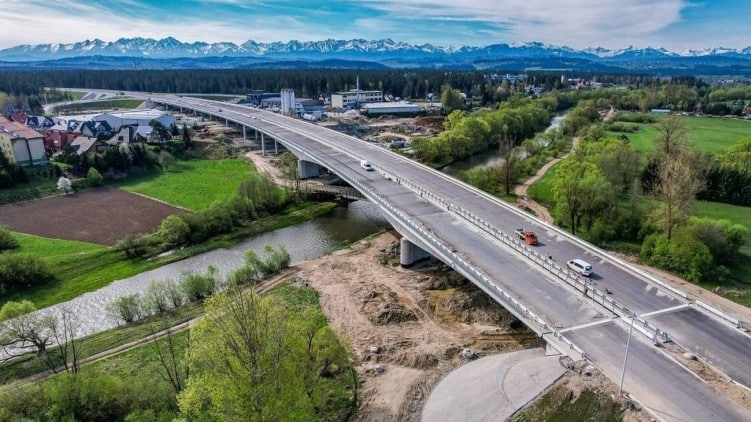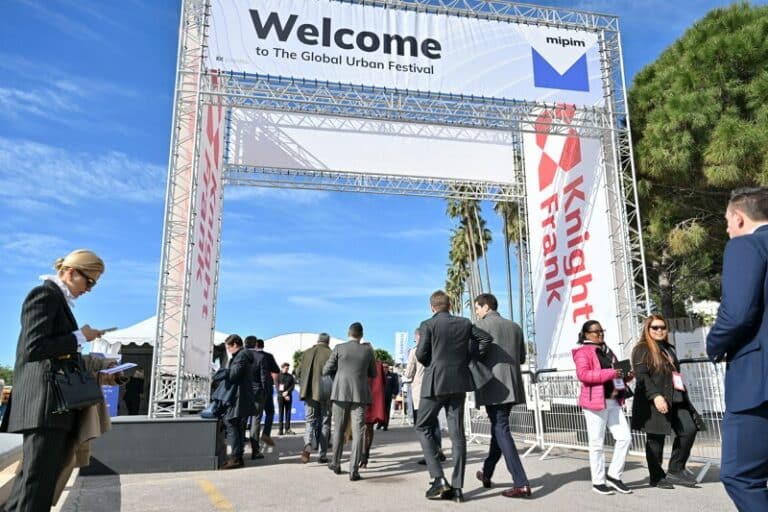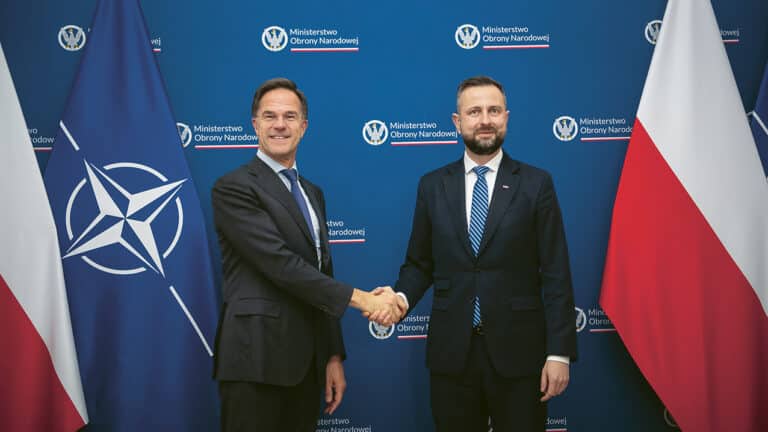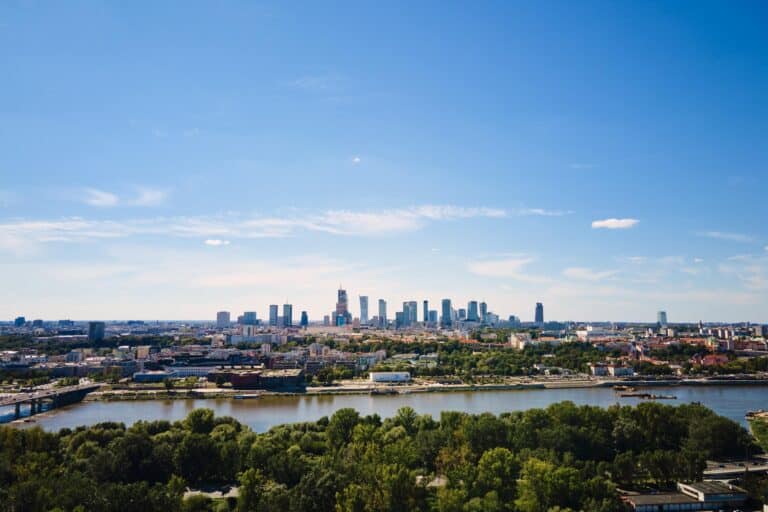Warsaw Security Forum warns of dangers ahead
Nathaniel England
The annual Warsaw Security Forum (WSF) took place on October 3-4. This is one of the biggest international security conferences in Europe, taking place for the 10th year running.
Attended by over 2,000 participants from 90 countries, with 200 speakers, this year’s forum consisted of four main tracks: defense, global outlook, energy and democratic resilience. The four key topics were discussed over both days via a series of panel discussions, roundtable discussions, presentations and executive dialogues.
Notably, this year’s “country partner” was the UK Government, aligning with an agreement in July, as part of the recently established UK-Poland 2030 Strategic Partnership, which introduced government-level representation at the WSF going forward.
This year’s event was of particular interest in the context of Poland’s growing relevance in Euro-Atlantic security and the importance of developments within Poland’s neighbor – Ukraine – and more broadly on NATO’s eastern flank.
The first panel discussion was notable, featuring Admiral Rob Bauer – current chairman of NATO’s military committee, who reminded attendees early on of the “two threats that NATO is facing – Russia and the terror groups.” Setting the tone of discussion for what would take place over the following two days, with a clear narrative that Russia is the main threat to the Euro-Atlantic region.
NATO stockpiles running low
One of the major issues currently facing the alliance, according to Adm. Bauer is that “many [NATO] armed forces have been neglected for decades, so the huge investments that are now coming is great, but it will take time to find people, to train them, and buy capabilities in a market where the industry is not beefing-up the production capacity fast enough.” This issue has been raised recently not only within the NATO alliance but also for AUKUS, as the United States in particular looks to supply Australia with nuclear submarines.
This so-called ‘ammunition crisis’ the West is now facing according to Adm. Bauer is due to the fact that even though in the seven years before the war defense budgets were increasing, the defense industry did not increase production capacity proportionally. “This has led to higher prices, even before the war, and that has [been] exacerbated by the fact that we give away weapons systems to Ukraine and ammunition, but not from full warehouses.” Furthermore, the key problem according to Adm. Bauer is that “we [NATO members] started to give away from half-full or lower warehouses in Europe,” and therefore “the bottom of the barrel is now visible” and desperately “need the [defense] industry to ramp-up production at a much higher tempo.”
Adm. Bauer suggested this inability to replenish fast enough is primarily due to “the just-in-time, just-enough economy that we have built together in the last 30 years, in our liberal economies.” This, according to Adm. Bauer, “is fine for a lot of things, but not for the armed forces when there is a war ongoing, where you have peak demand signals, like we saw in the pandemic with medical equipment.” Furthermore, “we will see as a result of the war in Ukraine that there is a higher demand for these [air-defense] capabilities, because for a very long time we thought we would not need as much of these as we now believe we need.”
This was supported by UK Minister of State for the Armed Forces – James Heappey – who noted the “elephant in the room,” namely “that not everybody in the alliance is yet spending 2% of their GDP on defense.” He argued that it “must be the floor of our defense spending, not the ceiling.”
“If now is not the time, when there is a war in Europe, to spend 2% on defense, then when is?” He reiterated that “there is no more trading space for time…the Eastern frontier of NATO is now a stop-line” and “deterrence must be the certainty that the moment any aggressor crosses that frontier they are met with overwhelming opposition that they cannot possibly overcome and that not one inch of NATO territory will be taken.”
UK-Polish Partnership
During the ‘country partner’ address, Heappey reflected briefly on the growing partnership between the UK and Poland. Despite the UK showing leadership in supporting Ukraine and being the first to donate increasing capability thresholds, “few have made the emotional case better than Poland and it is to Poland’s enormous credit that it has sought to lead in the moral argument for why the international community must rally around their Ukrainian neighbors.”
“There are UK typhoon [jets] in the country now, and the ‘Sky Sabre’ [air defense system], and over the last couple of years UK infantry and cavalry have been in the country as part of an enhanced for-presence battlegroup.” Likewise, “the UK and Poland are working together on air-defense, helicopters and warships, which will be a great symbol of our mutual approach to defense over the decades ahead.”
Where to stand on Ukraine?
Another interesting observation and warning concerning how the West engages with developing nations on the issue of Russian aggression, Heappey noted that, “if we make it binary, that you’re either on our side or you’re not, we will not end up with many friends…in the world beyond, they are looking for partnerships that balance their [own] geostrategic risks.” Despite what might seem like an obvious moral dilemma in supporting Ukraine, many of these developing nations “aren’t looking to choose,” he added. They see good reasons to have friendships with all major world players, including China and Russia, “and it’s for us to learn how to operate within that requirement,” he said.
If we are “too absolutist” about this issue, i.e., if you [developing countries] don’t support Ukraine, you are “morally wrong,” the West is in danger of pushing developing partners away. Then, according to Heappey, there is a serious risk that “we kind of win the battle by seeing Putin fail in Ukraine, but ultimately in terms of standing up for a rules-based international order that we think works in the interests of the whole of the planet, there’s a kind of risk that we end up losing the war.”
Some concerns were shared during a later panel on day one on the likelihood of a Republican victory at the next US election. Would a second US Trump administration essentially cut all funding and military support to Ukraine and/or engage in a negotiation with Russia and sacrifice territory of Ukraine to end the war as fast as possible? Another point was surrounding the credibility of the US to assist European partners if Article 5 of the NATO treaty was triggered by a member, especially one that may not be meeting the 2% GDP spending commitment. There was growing concern among Europeans as to the US’s ‘global policeman’ role, as well as a wake-up call for European leaders to step-up and take change of Euro-Atlantic security. Even if Trump doesn’t win the next election, there’s an increasing chance that any Republican administration would be more interested in focusing attention away from Europe/Russia and towards the Indo-Pacific/China region.

